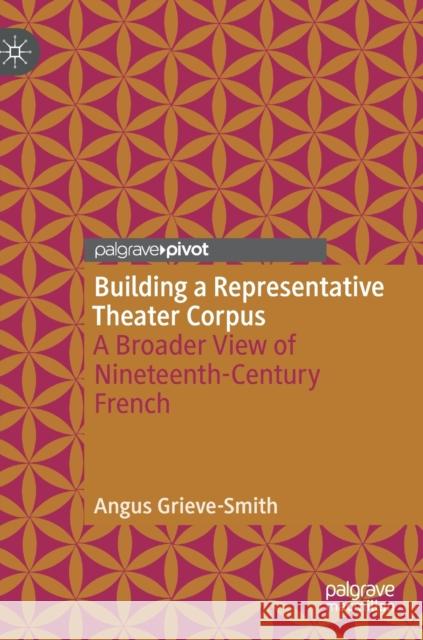Building a Representative Theater Corpus: A Broader View of Nineteenth-Century French » książka
topmenu
Building a Representative Theater Corpus: A Broader View of Nineteenth-Century French
ISBN-13: 9783030324018 / Angielski / Twarda / 2019 / 104 str.
Kategorie:
Kategorie BISAC:
Wydawca:
Palgrave Pivot
Język:
Angielski
ISBN-13:
9783030324018
Rok wydania:
2019
Dostępne języki:
Ilość stron:
104
Waga:
0.35 kg
Wymiary:
21.01 x 14.81 x 1.27
Oprawa:
Twarda
Dodatkowe informacje:
Wydanie ilustrowane











